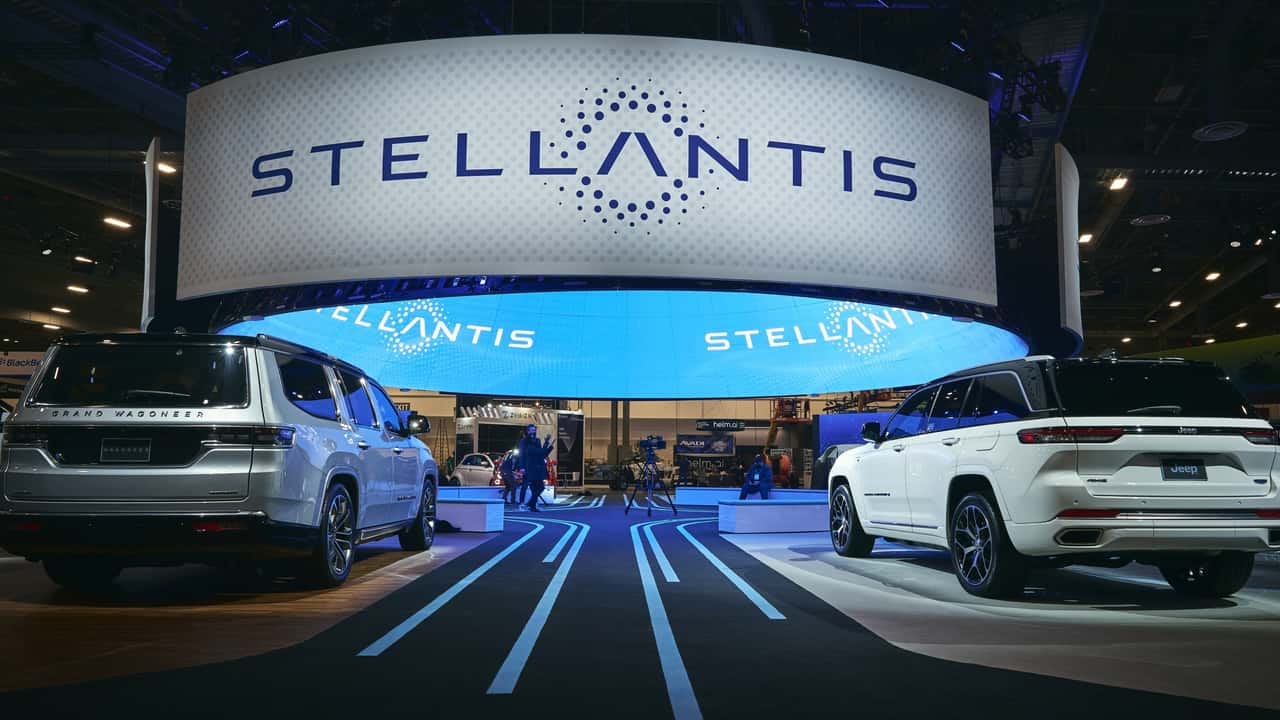
Stellantis CEO Warns: Automakers Facing a 'Big Trap' Amidst EV Transition
Diesel Specialists – The automotive world is in the midst of a historic transformation, with electric vehicles (EVs) taking center stage. Yet, not everyone views this shift as entirely smooth or risk-free. Stellantis CEO Carlos Tavares recently issued a stark warning, describing a “big trap” awaiting automakers as they navigate the complexities of the EV transition.
His concerns shine a spotlight on the financial, environmental, and infrastructural challenges that could potentially derail the industry’s electrification plans. As governments push for stricter emissions standards and customers demand greener vehicles, are automakers truly prepared for what lies ahead?
During a recent industry conference, Tavares highlighted the immense pressure automakers face in aligning with global EV mandates. He argued that the transition to electric vehicles poses several interconnected risks, including rising production costs, limited consumer affordability, and infrastructure deficits.
One of his key points centered on the financial viability of the EV transition. While manufacturers are investing billions into EV technology, these costs could strain automakers’ budgets, especially those dependent on traditional internal combustion engine (ICE) sales. According to Tavares, the industry risks overcommitting to a strategy that may not deliver the intended results in the expected timeframe.
The transition to EVs requires automakers to revamp manufacturing plants, redesign supply chains, and secure critical raw materials like lithium, cobalt, and nickel for battery production. These expenses are astronomical and often come with supply bottlenecks that further inflate costs.
Tavares expressed concern that these investments might not be recouped quickly, particularly as the adoption of EVs remains uneven across different markets. In developing regions where charging infrastructure is sparse, demand for EVs lags behind, posing a significant challenge for manufacturers attempting to balance global supply and demand.
A major component of the “big trap” Tavares warns about is the affordability of EVs for the average consumer. Despite falling battery prices, electric vehicles still carry a higher upfront cost compared to their gasoline-powered counterparts. Many consumers remain hesitant to switch to EVs, citing the high purchase price, limited range, and inadequate charging networks as barriers.
Tavares argued that if automakers fail to make EVs accessible to a wider audience, they risk alienating a significant portion of their customer base. This, in turn, could undermine the industry’s ability to achieve the scale needed to drive down costs and accelerate the adoption of electric vehicles.
READ MORE : 10 Weird Internet Inventions You’ll Never Believe Exist!
Another critical issue highlighted by Tavares is the inadequate charging infrastructure, particularly in regions where EV adoption is still in its infancy. Even in countries with established EV markets, the pace of infrastructure expansion often lags behind the growing number of EVs on the road.
Without a robust and widespread charging network, potential EV buyers may hesitate to make the switch, further slowing the transition. Tavares emphasized the need for greater collaboration between automakers, governments, and energy providers to address this bottleneck and ensure that charging infrastructure evolves alongside vehicle sales.
While governments worldwide are implementing policies to accelerate the EV transition, Tavares cautioned against overly aggressive timelines. He noted that strict emissions regulations and ICE bans could force automakers to rush the transition, leading to unintended consequences such as quality compromises or increased reliance on unsustainable practices to meet demand.
Tavares also called for more balanced policies that take into account the diversity of global markets. For instance, while Europe and North America may be ready for widespread EV adoption, many developing countries still lack the necessary infrastructure and economic conditions to support such a shift.
One of Tavares’ most thought-provoking arguments is the need for a diversified approach to decarbonization. While EVs are a crucial part of the solution, he suggested that alternative technologies like hydrogen fuel cells, hybrid systems, and synthetic fuels should also be explored.
This multi-pronged strategy could help mitigate some of the risks associated with a full-scale EV transition, particularly in markets where EV adoption faces significant barriers. Tavares urged automakers to remain flexible and innovative in their approach to sustainability, rather than relying solely on electric vehicles.
To navigate the challenges of the EV transition, automakers must adopt strategic and adaptable solutions. This includes:
The EV transition is undoubtedly a pivotal moment in the history of the automotive industry. However, as Stellantis CEO Carlos Tavares has pointed out, this shift is fraught with challenges that must be addressed to ensure long-term success.
By taking a balanced and pragmatic approach, automakers can avoid the pitfalls of overcommitting to electrification while still contributing to a sustainable future. The road ahead may be complex, but with collaboration, innovation, and adaptability, the industry can turn this challenge into an opportunity for growth and transformation.
[SITE_NAME] - alternative fuels changing diesel engines are accelerating the evolution of transportation technology as industries shift toward cleaner and…
Diesel Specialists | Expert Engine Solutions for Diesel, Gasoline & More - Diesel particulate filter failures on Komatsu heavy equipment…
Diesel Specialists | Expert Engine Solutions for Diesel, Gasoline & More - A common rail diesel engine significantly enhances fuel…
Diesel Specialists | Expert Engine Solutions for Diesel, Gasoline & More - heavy duty diesel engines different characteristics set them…
Diesel Specialists | Expert Engine Solutions for Diesel, Gasoline & More - Properly inspect your diesel engine before a long…
Diesel Specialists | Expert Engine Solutions for Diesel, Gasoline & More - the role of fuel injector is crucial in…